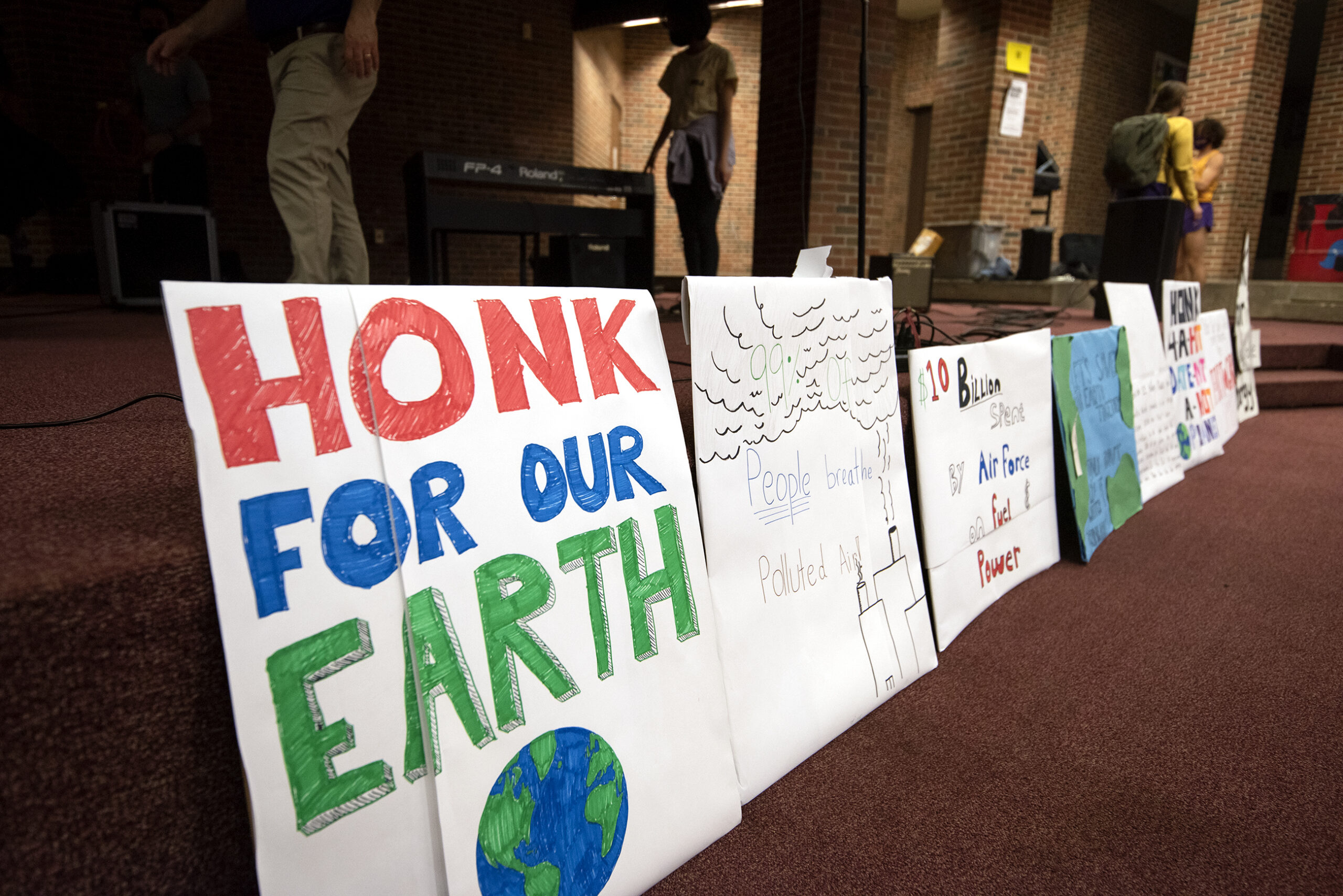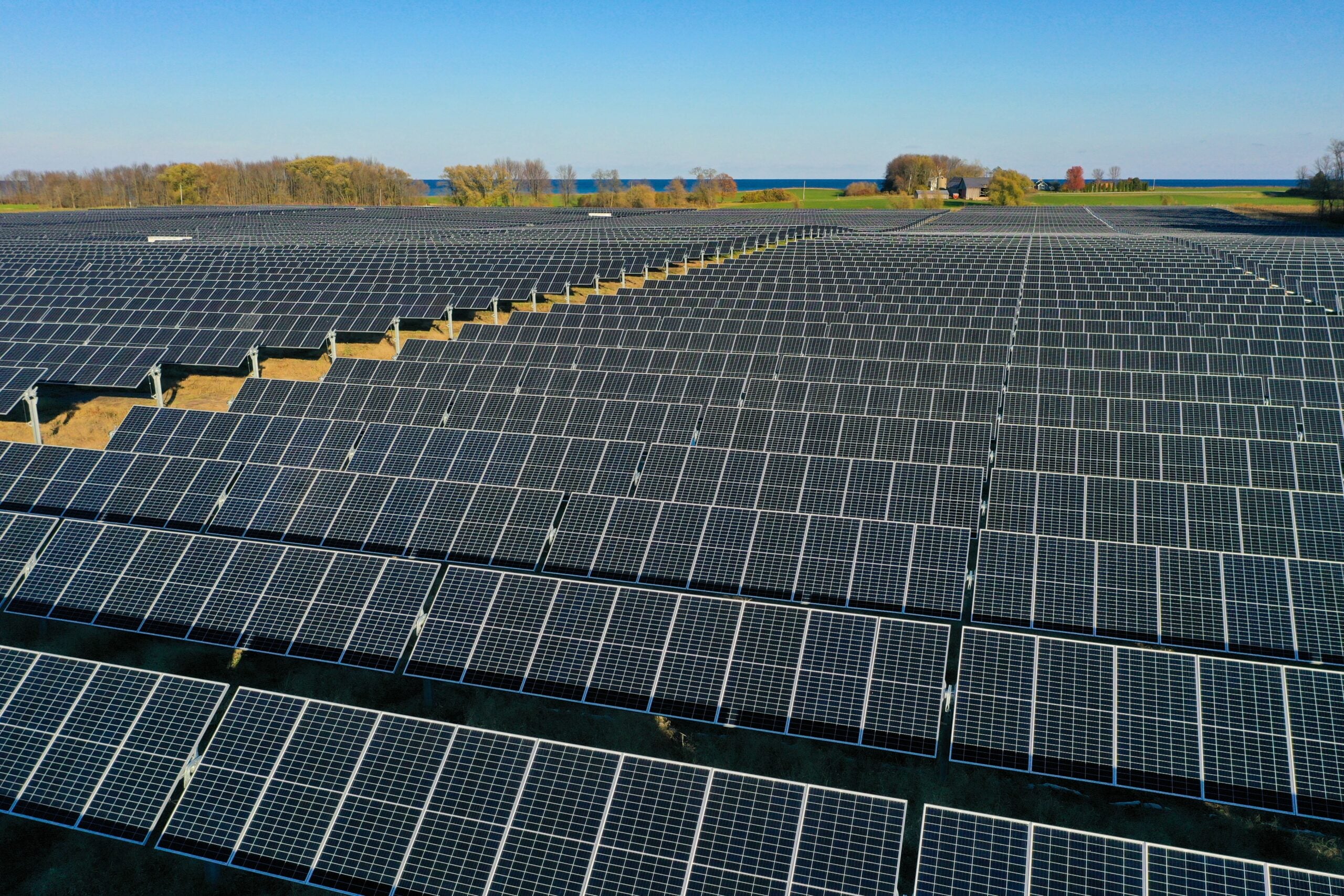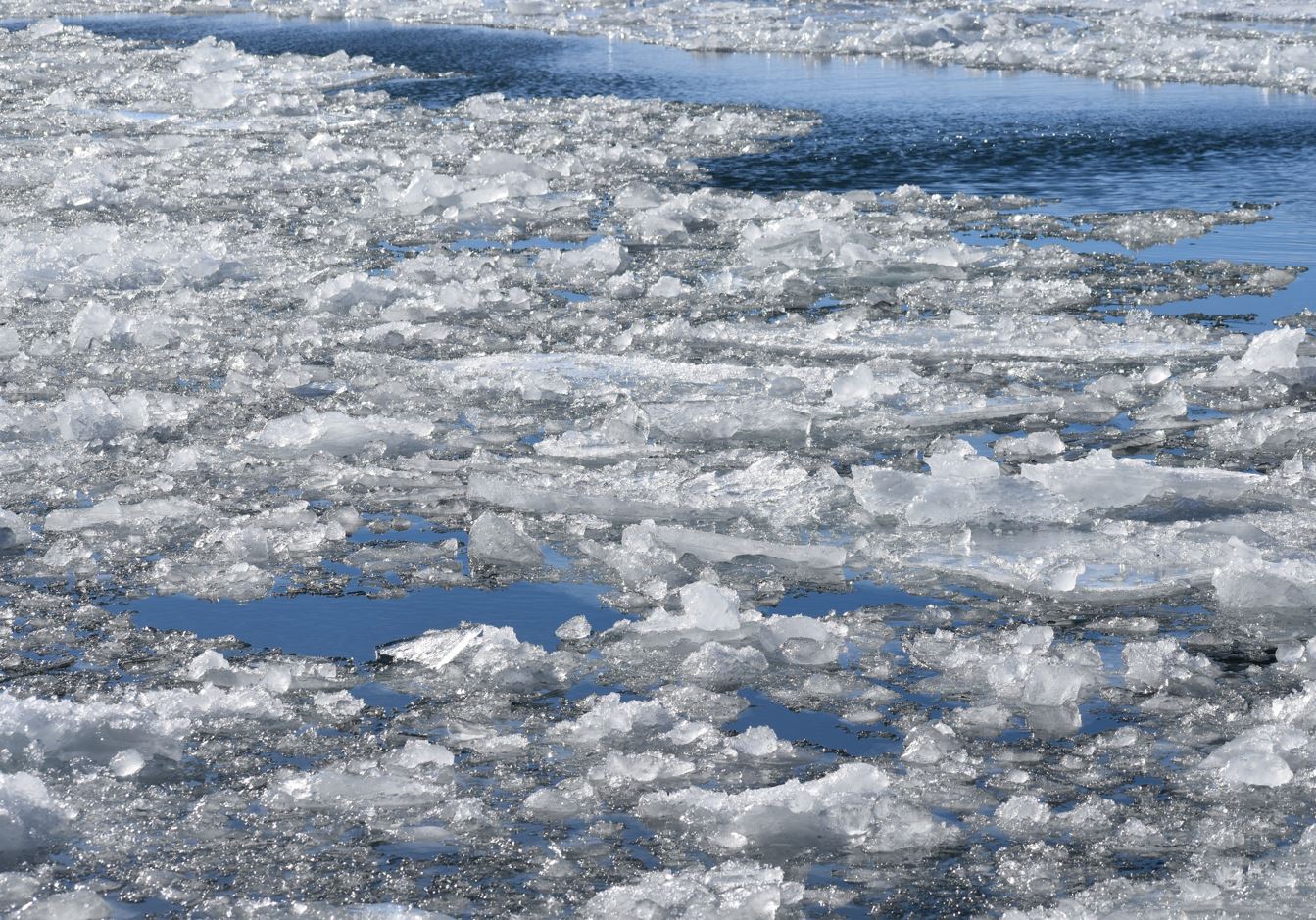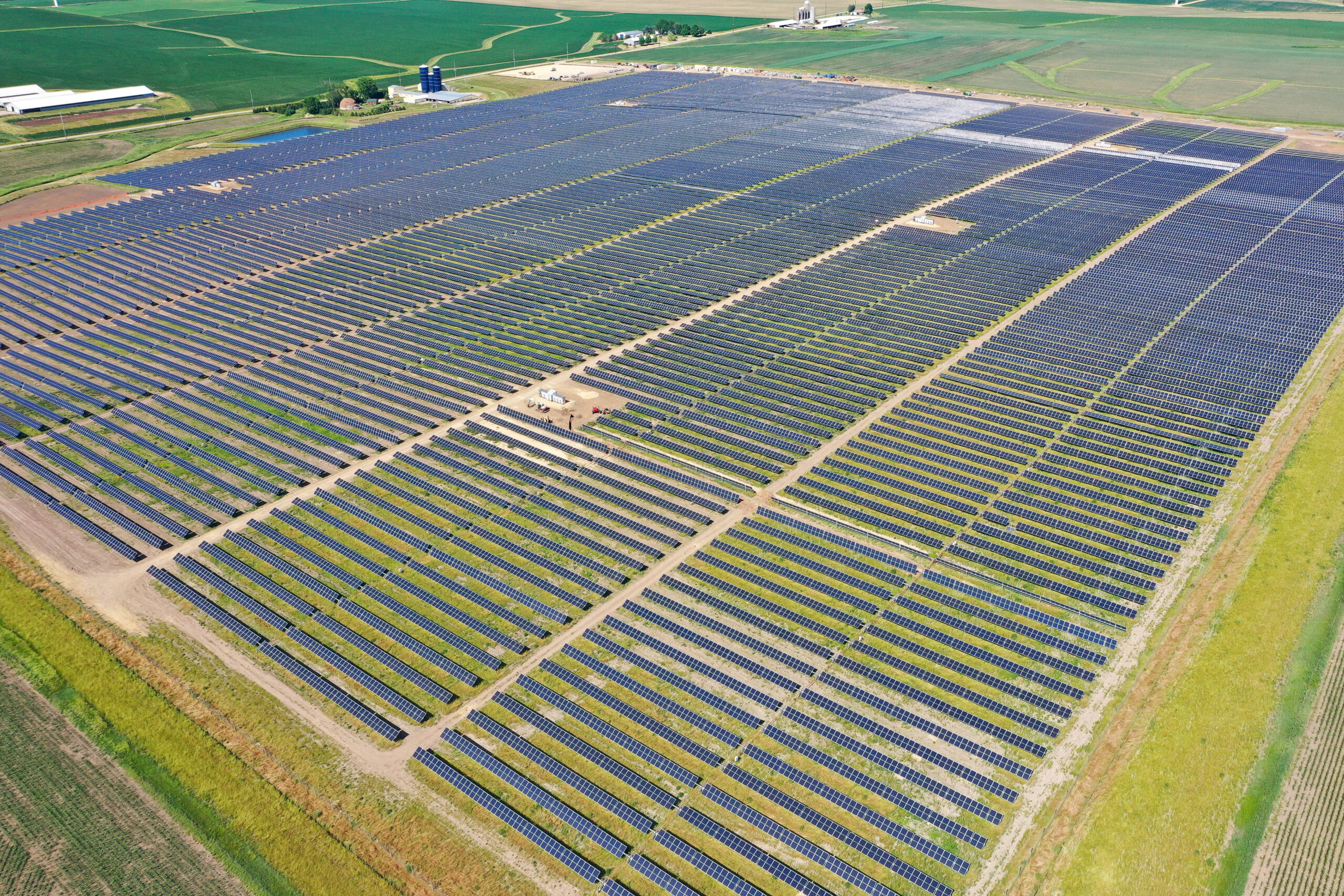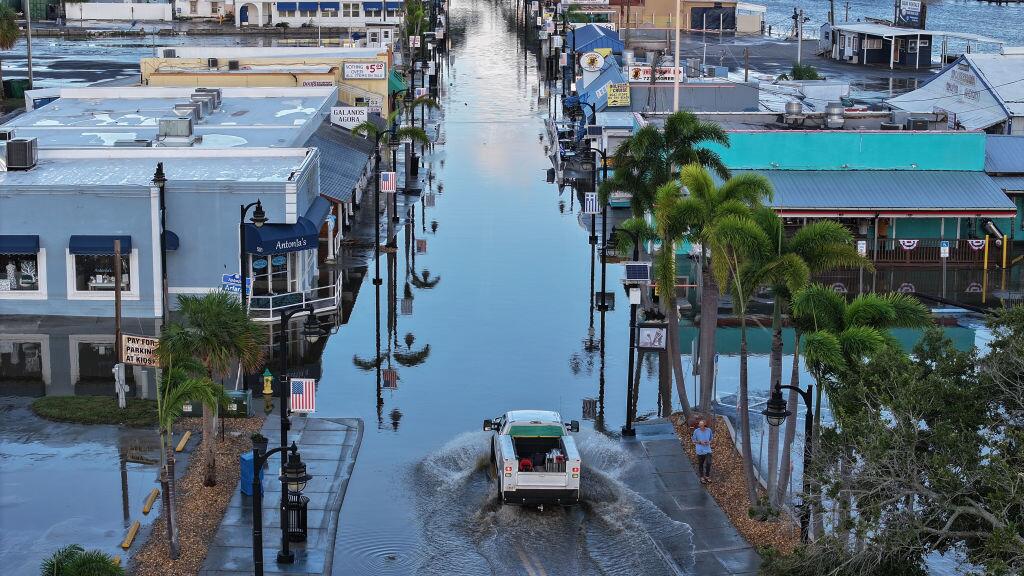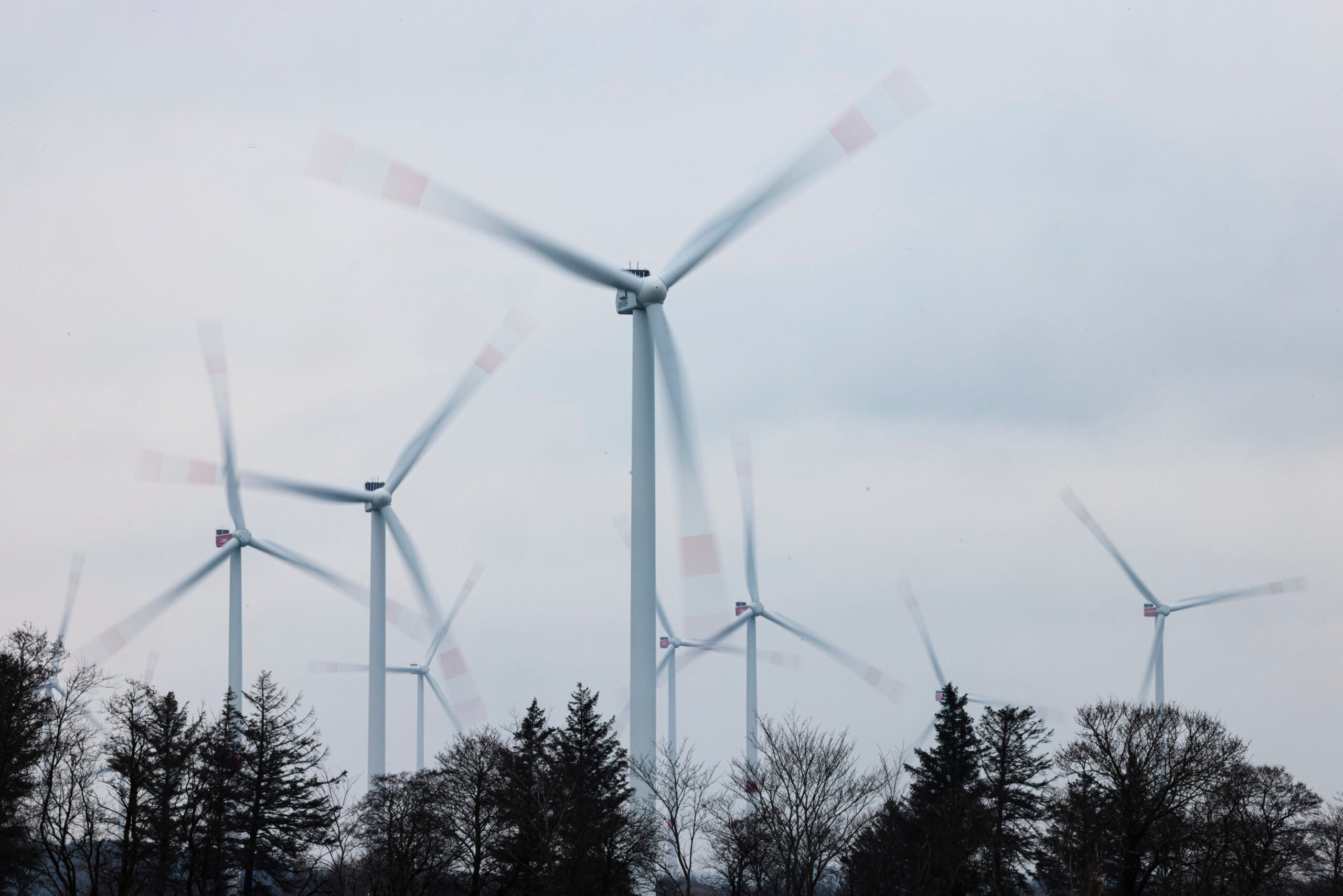Lulu Fregoso has grown up in a world where most years have been among the warmest on record.
Like many teens and young adults, the Milwaukee area native said she’s worried about the effects of the climate crisis as people around the world hold events this Earth Day.
Fregoso, a 21-year-old student at the University of Wisconsin in Madison, recalled skies in Madison and Milwaukee thick with smoke from Canadian wildfires last summer. A study last year said hot, dry and windy conditions made the blazes twice as likely to burn due to climate change.
Along with record-setting wildfires, 2023 was the hottest year on record and witnessed record levels of heat-trapping greenhouse gas emissions.
“I think in our generation, global warming and climate change are really big issues that we’ve kind of been left with and that we feel responsible to help fix,” Fregoso said.
That led her to help organize UW-Madison’s Climate and Justice Teach-In. The event will be held Monday on Earth Day.
Stay informed on the latest news
Sign up for WPR’s email newsletter.
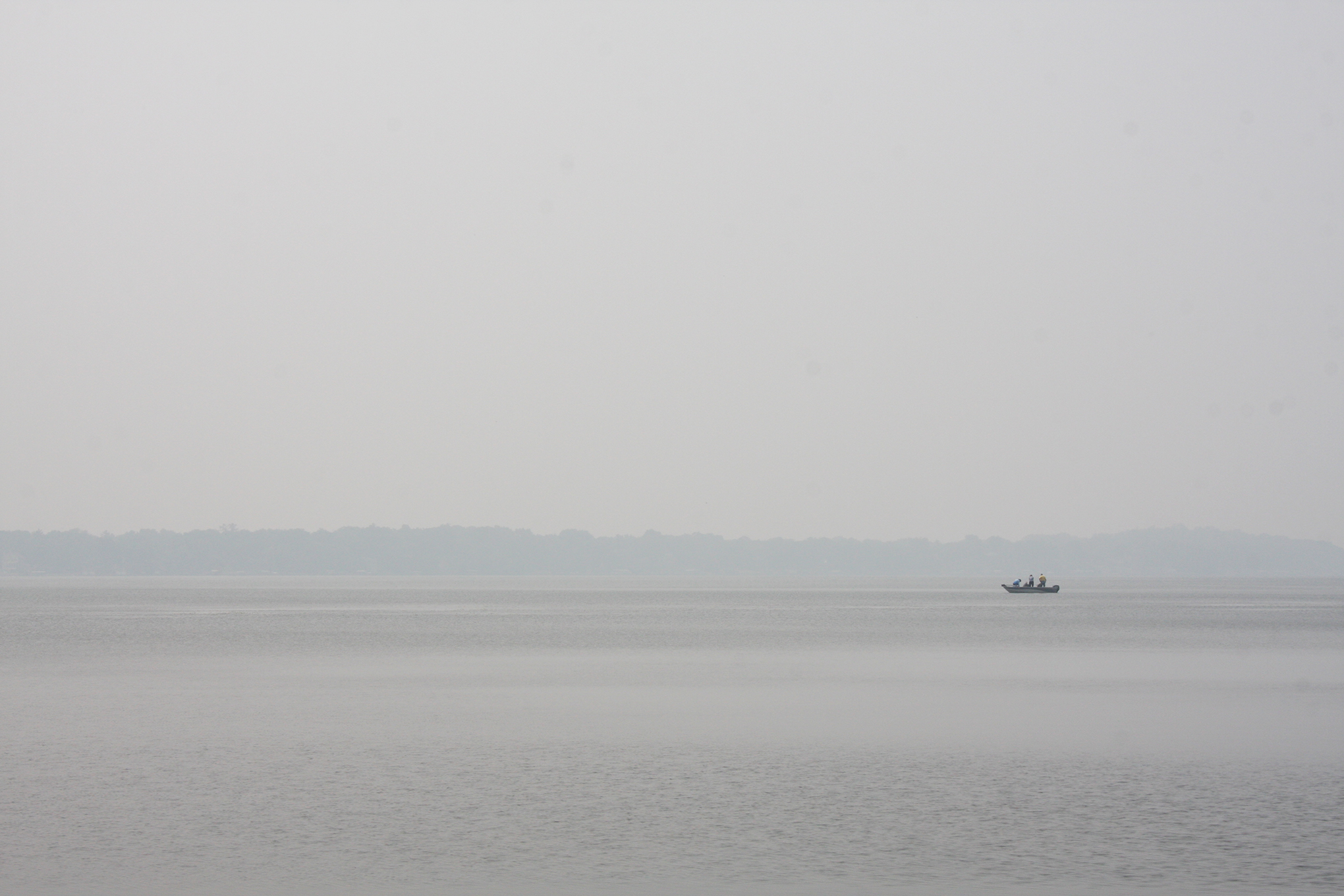
Fellow organizer and UW-Madison student Katie Wenzel, 21, said they felt it was important to focus on climate justice, highlighting the disproportionate effects of climate change on low-income residents and communities of color.
“And what we can do to bring awareness to that and kind of work towards a more just society,” Wenzel said.
The Climate and Justice Teach-In Monday is part of Earth Fest. More than 50 events will be held on campus April 19-26 celebrating Earth Day and Earth Week that aim to educate and engage the community, including solutions to address climate change. The teach-in, hosted by the Wisconsin Energy Institute, will feature a panel discussion and workshop on sustainability and climate justice.
The event follows in the footsteps of Wisconsin U.S. Sen. Gaylord Nelson, who came up with the idea of a national “teach-in” on the environment. Around 20 million people attended the first-ever Earth Day at thousands of sites on April 22, 1970.
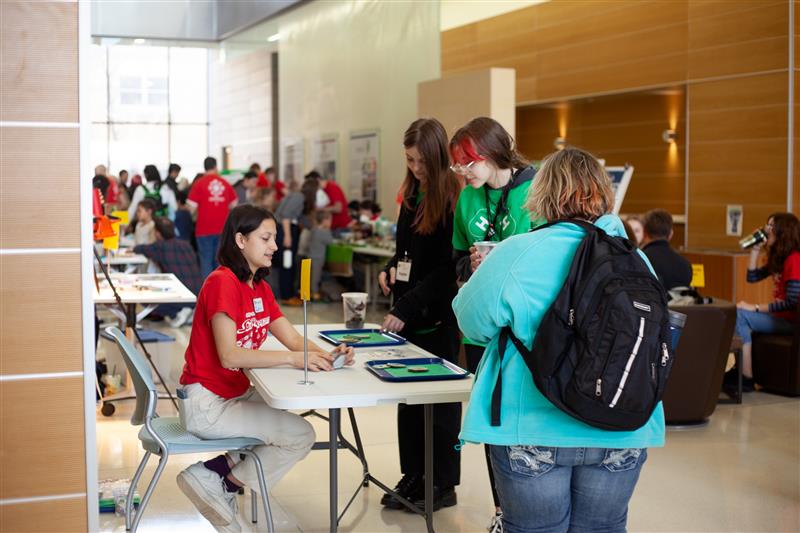
‘A success beyond his wildest dreams’
Tia Nelson, daughter of Earth Day’s founder, said it was a success beyond his wildest dreams and set the stage for Congress to pass landmark environmental laws like the Clean Air Act and Clean Water Act.
“The biggest environmental challenge we face today is unquestionably climate change. It’s the biggest environmental challenge humanity has ever faced,” Nelson said. “For me, it’s a pretty complicated dance between hope and despair. I am hopeful because I know the climate solutions are within reach, and I feel a great sense of distress over how divisive and partisan it’s become.”
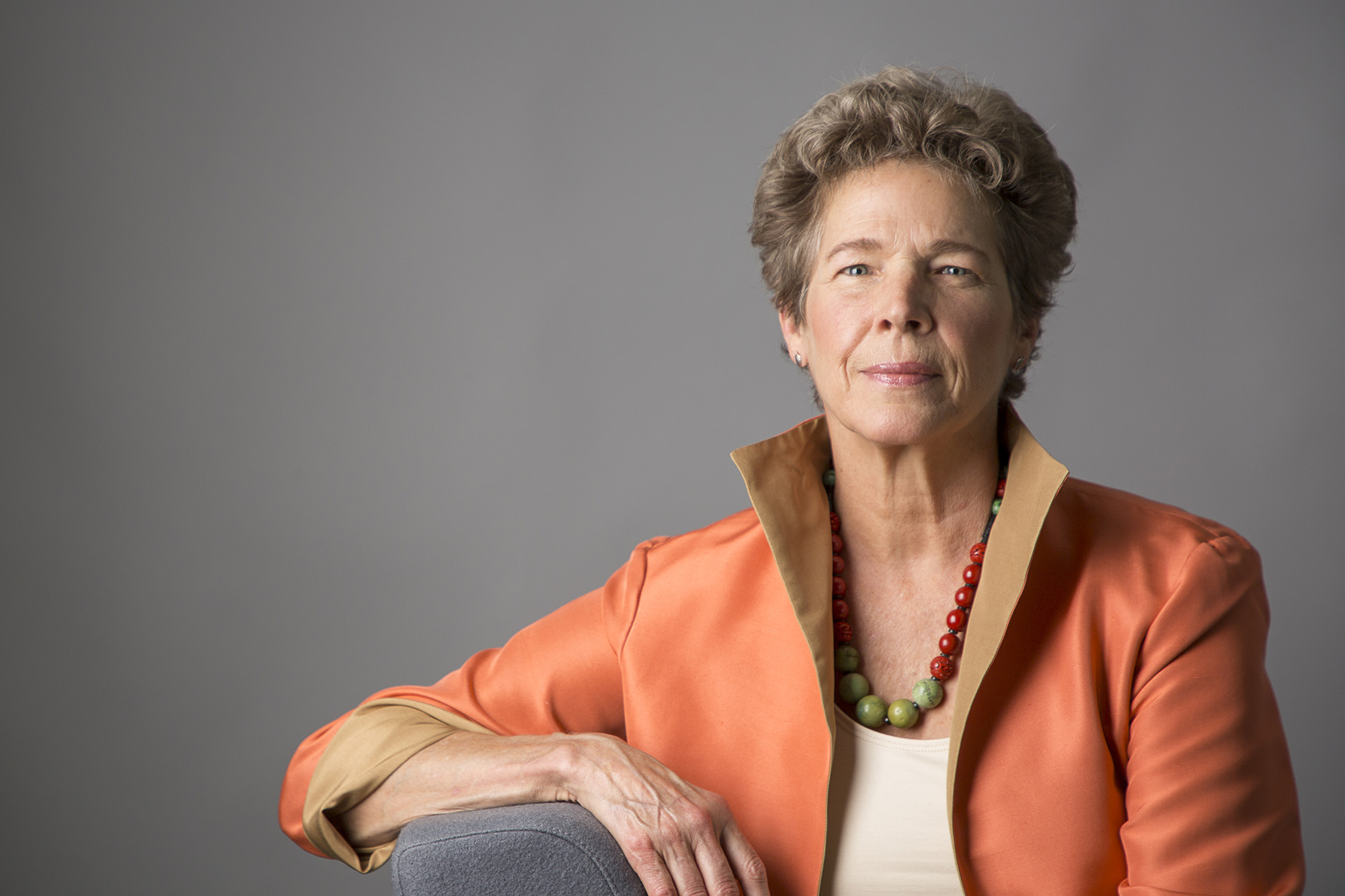
Polls have shown partisan splits between Democrats and Republicans over climate change. Almost 8 in 10 Democrats think climate change is a major threat compared to about 1 in 4 Republicans, according to the Pew Research Center. Even so, Nelson said she’s more optimistic the nation will speed up efforts to address climate change, noting polls show the majority of youth across party lines are worried about the issue.
“I have to believe that with the youth concern today, and youth activism today, that ultimately that will lead to dramatic changes and progress on this issue in the future,” Nelson said.
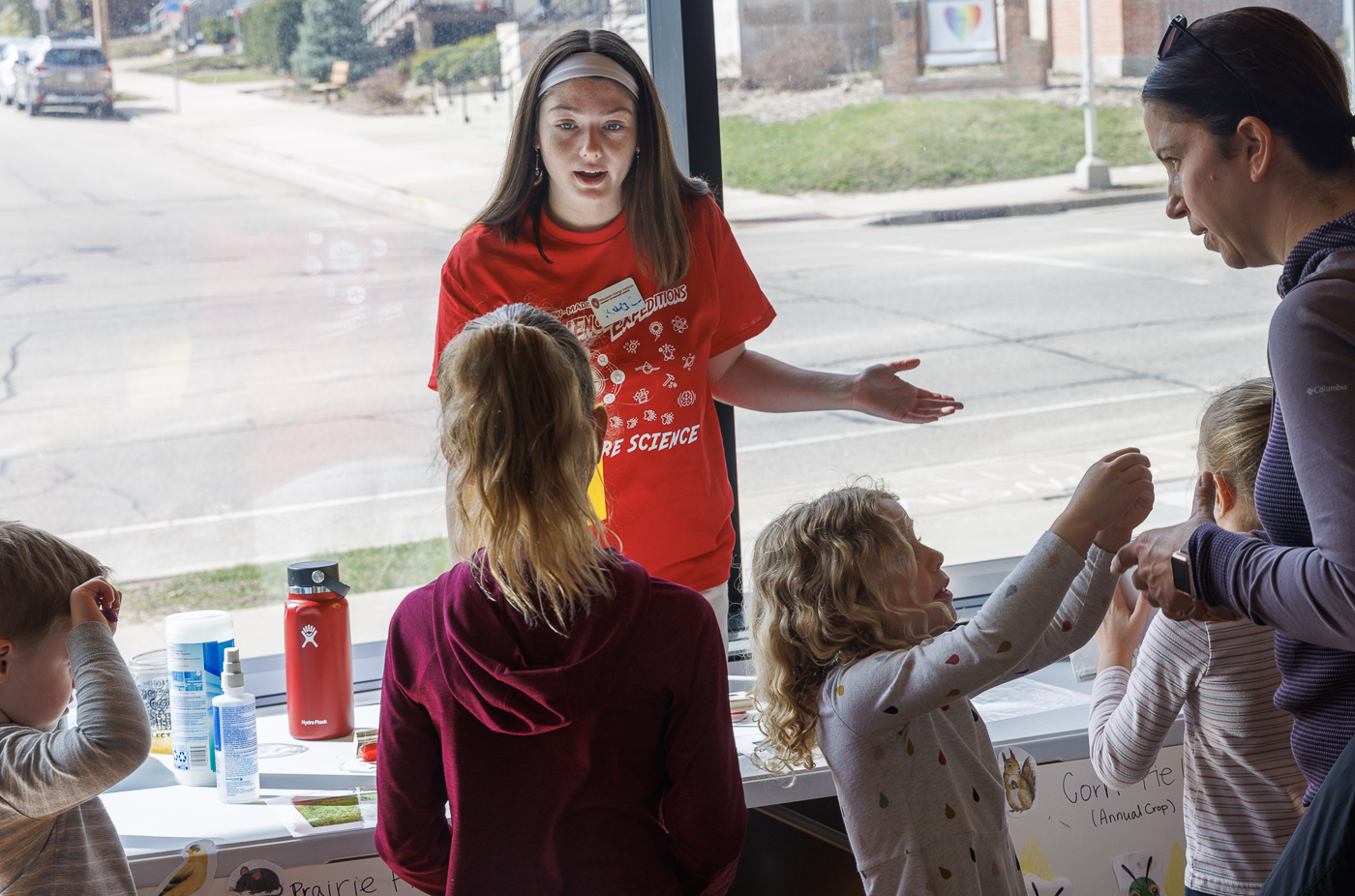
Environment and social justice go hand in hand
Nelson added youth are bringing forward the notion that a clean environment and environmental justice are intertwined.
Paul Robbins, dean of the Nelson Institute for Environmental Studies at UW-Madison, said much of Gaylord Nelson’s legacy focused on alleviating poverty and addressing inequality in society — not just the environment.
“We lead with a community-first vision that justice comes first,” Robbins said. “If you get justice right, you’re on the road to healing the environment.”
On Friday, Earth Fest kicks off and features a keynote speech from Tony Reames, former deputy director for energy justice for the U.S. Department of Energy. He also worked as the agency’s principal deputy director for the Office of State and Community Energy Programs.
Reames created policy for the Biden administration’s Justice 40 Initiative. That aims to direct 40 percent of benefits from federal investments to disadvantaged communities.
“The hope of energy justice is that those who have borne the burden of our energy system are at the front of the line to benefit from the new energy system that we’re designing,” Reames said. “There’s a major opportunity to ensure that there’s balance between or push to do everything we can through technological advances, while also ensuring that the new system we’re creating is more equitable and just.”
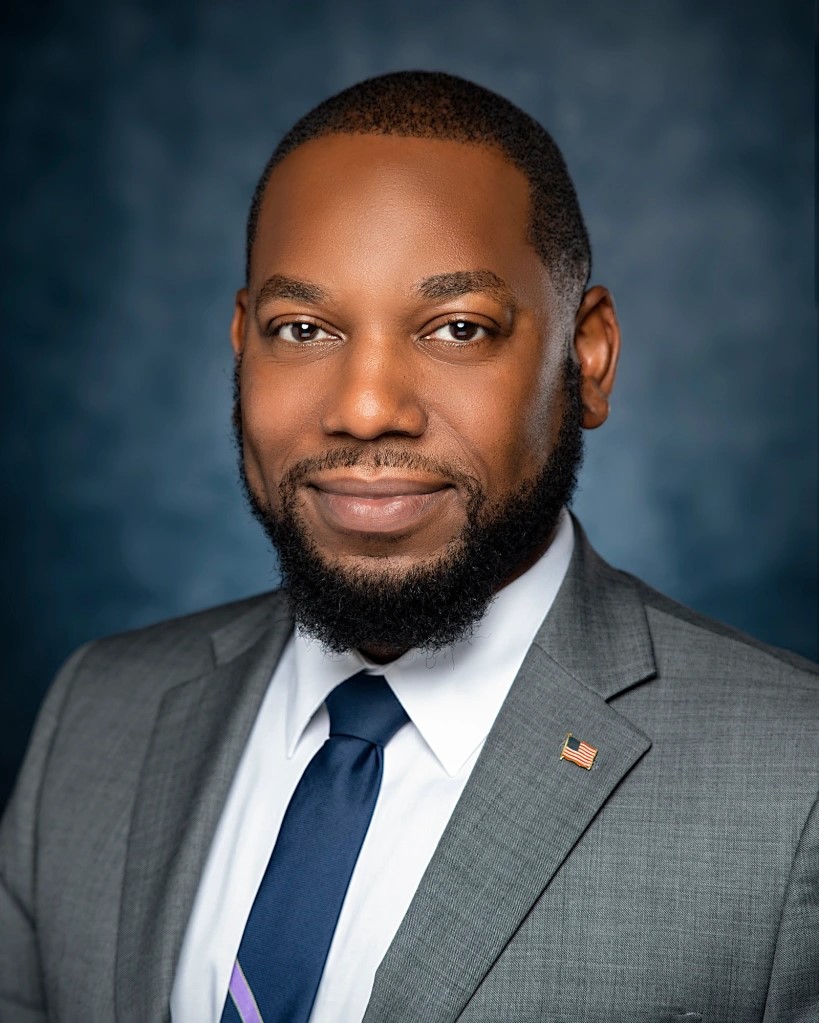
Millions facing energy insecurity
In 2015, Reames said, 1 in 3 Americans, or 37 million households, faced energy insecurity. That includes challenges paying bills or adequate heating and cooling in their homes. Communities of color, low-income households and renters are among those that faced higher rates of energy insecurity. That’s true in cities like Milwaukee where Black, Hispanic or Latinx communities represent the majority of residents in neighborhoods facing a high energy burden.
Reames said it’s important to use that data to design programs that seek to erase those disparities.
Earth Fest will also cover the university’s environmental sustainability initiative announced this year, which includes goals to reach 100 percent renewable energy by 2030 and zero emissions by 2048. As Earth Day approaches, Robbins said he hopes the events will give people ways that they can address climate change in their own lives.
“One of the biggest enemies to addressing these problems right now is a sense of paralysis and hopelessness,” Robbins said.
Fregoso agreed that despair often surrounds climate issues.
“I think it’s really important to know that there’s something that we can do,” Fregoso said. “We’re not helpless. We can work towards creating the change that we want to see.”
Wisconsin Public Radio, © Copyright 2025, Board of Regents of the University of Wisconsin System and Wisconsin Educational Communications Board.
